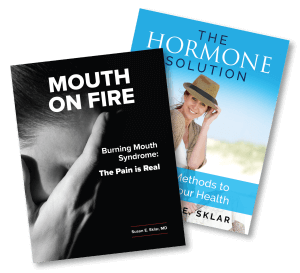Heart Attack and Stroke Prevention Program
Heart Health Q & A
What Are The Signs Of A Heart Attack?
The American Heart Association lists the top five signs of a heart attack as:
- Pain or discomfort in the chest
- Lightheadedness, nausea, or vomiting
- Jaw, neck, or back pain
- Discomfort or pain in the arms or shoulder
- Shortness of breath
Although chest pain and discomfort are universal signs of a heart attack, men and women tend to experience slightly different symptoms. Women are more likely to have the accompanying shortness of breath, vomiting, and jaw pain, while men commonly report chest pain.
If you experience these symptoms, it’s important to take quick action. Every minute counts, and the sooner you get help, the better your chance of recovery.
If you ever experience the symptoms of a heart attack, call 911.
Do I Carry Risk Factors For A Heart Attack?
Coronary heart disease, or the buildup of plaque inside the arteries, increases your risk of a heart attack. The following risk factors contribute to coronary heart disease:
- High blood pressure
- High cholesterol
- Genetics
- Inflammation
- Obesity
- Smoking
- High carbohydrate diet
- Male gender and increasing age
While you can’t control your gender, genetics, or age, you can take immediate action to reduce your other risk factors and deter heart problems.
If I’m At Risk For A Heart Attack, How Can I Help Prevent It?
Unlike the conventional approach, which puts little focus on prevention, the Sklar Center provides a heart attack prevention program that targets your modifiable risk factors. We start with testing that evaluates the underlying causes of heart disease such as inflammation, genetic risks and nutritional deficiencies. At the Sklar Center we use hormones, supplements, and lifestyle adjustments as part of our treatment approach.
One of the lifestyle adjustments the Sklar Center Team focuses on is diet. We use a low carbohydrate, high healthy fat diet which is a modified ketogenic diet. We have witnessed amazing changes in cholesterol levels with this type of eating plan.
Exercise can also help keep your heart healthy. Research suggests 40 minutes of moderate-to-intense exercise 3-4 days a week for lower blood pressure, lower cholesterol, and healthy weight maintenance. Even if you can’t manage that much exercise right now, any effort to be active is beneficial to your heart.
A healthy diet combined with exercise is a great way to lower cholesterol, reduce high blood pressure, reduce weight, and decrease your overall heart attack risk. And if you can manage your stress, quit smoking, and limit alcohol, you can lower your chance of disease even further. We find that with proper diet and nutritional supplements, you can avoid the use of medications which may have many unwanted side effects.
If you’re concerned about your heart health, make an appointment with the Sklar Center for Restorative Medicine to discuss your prevention options.
Download Your Free eBook


